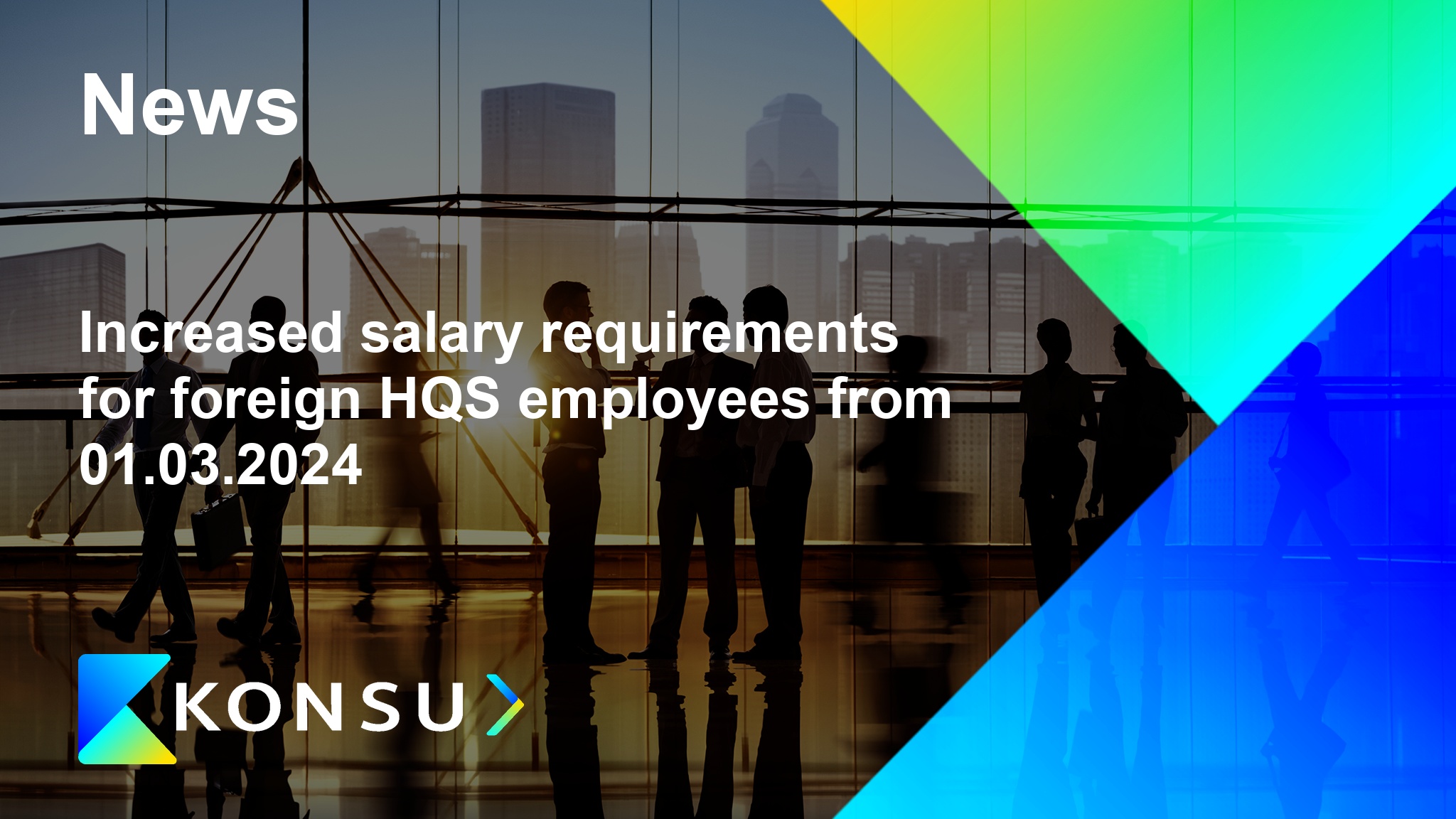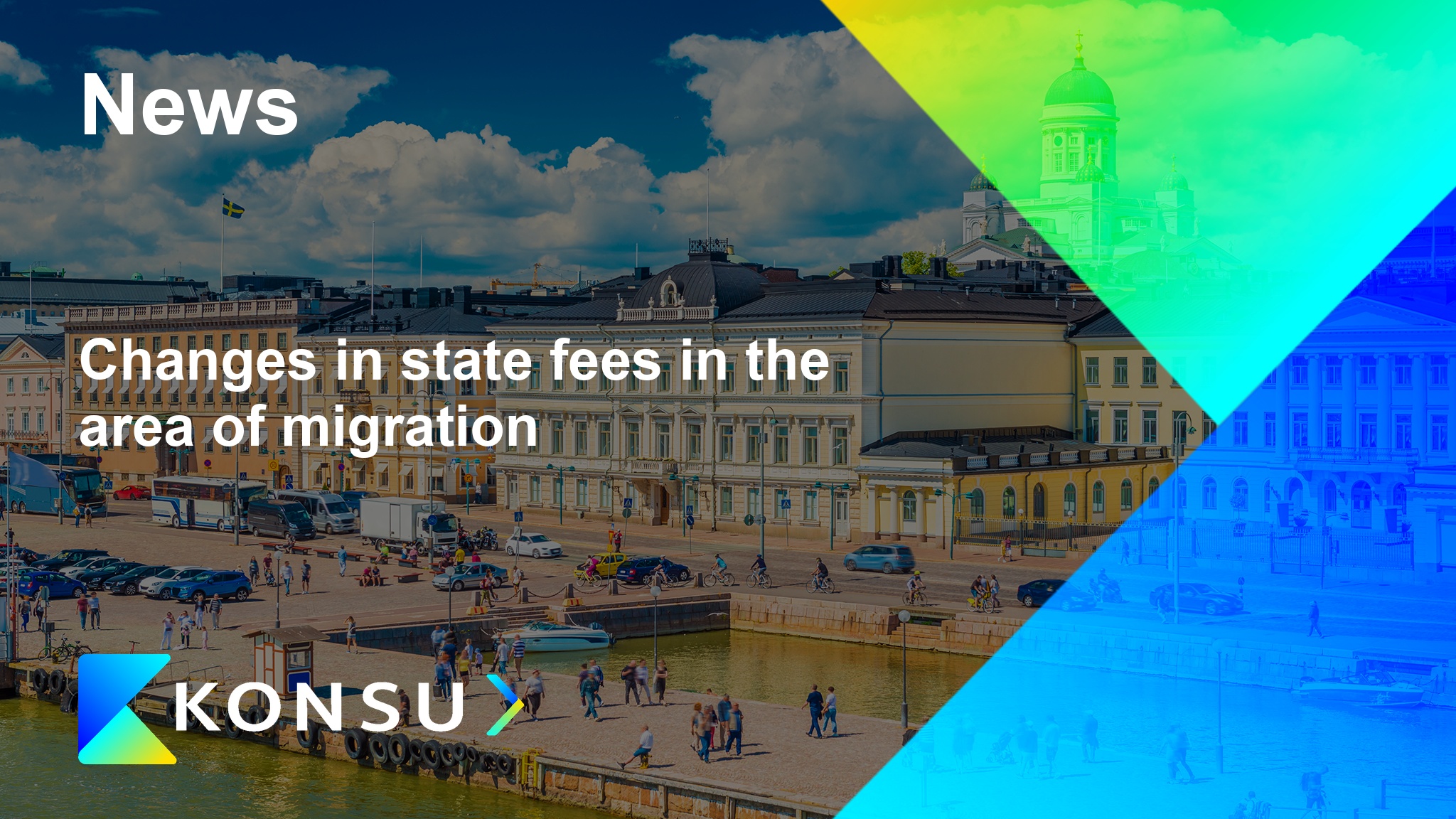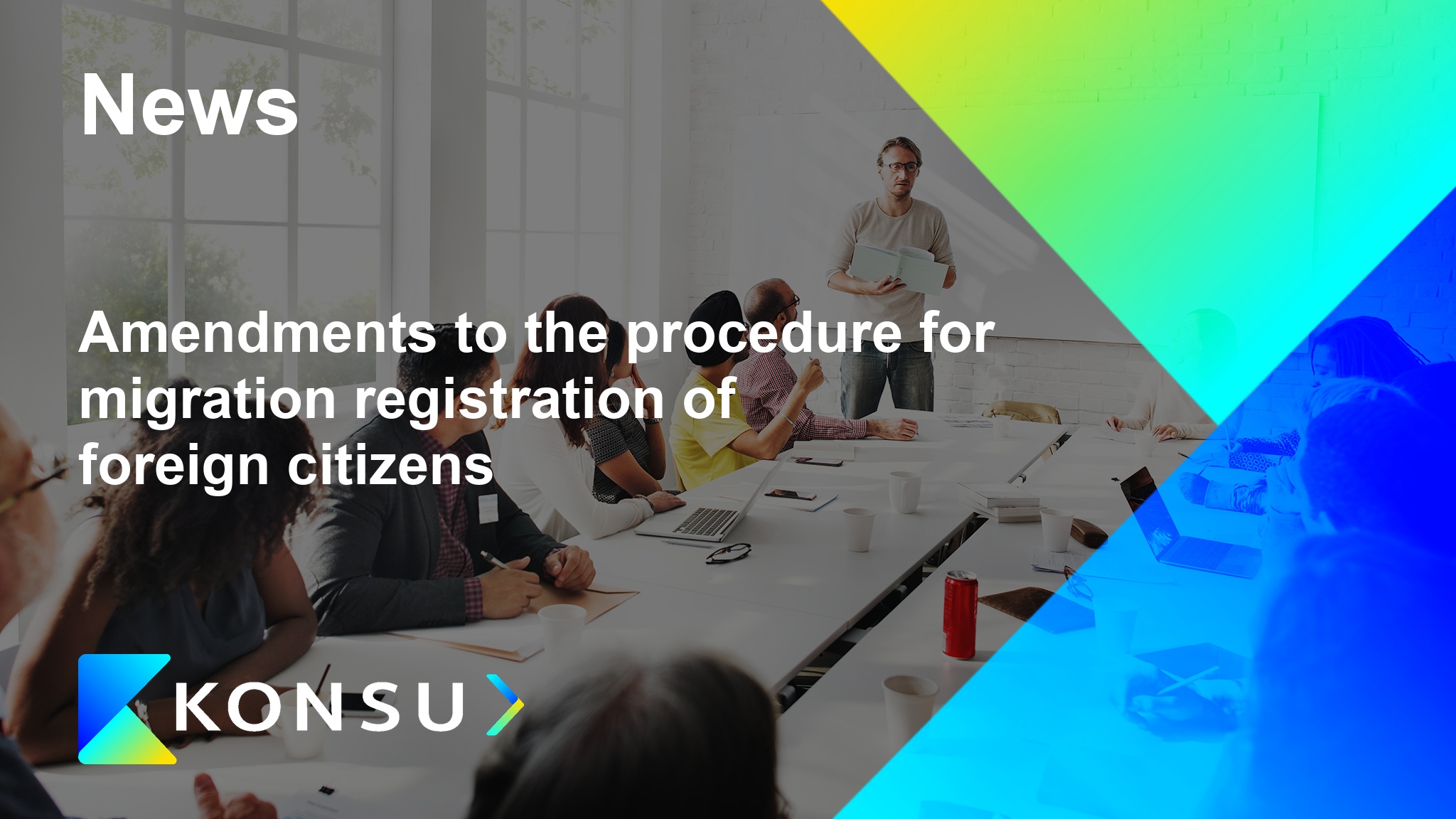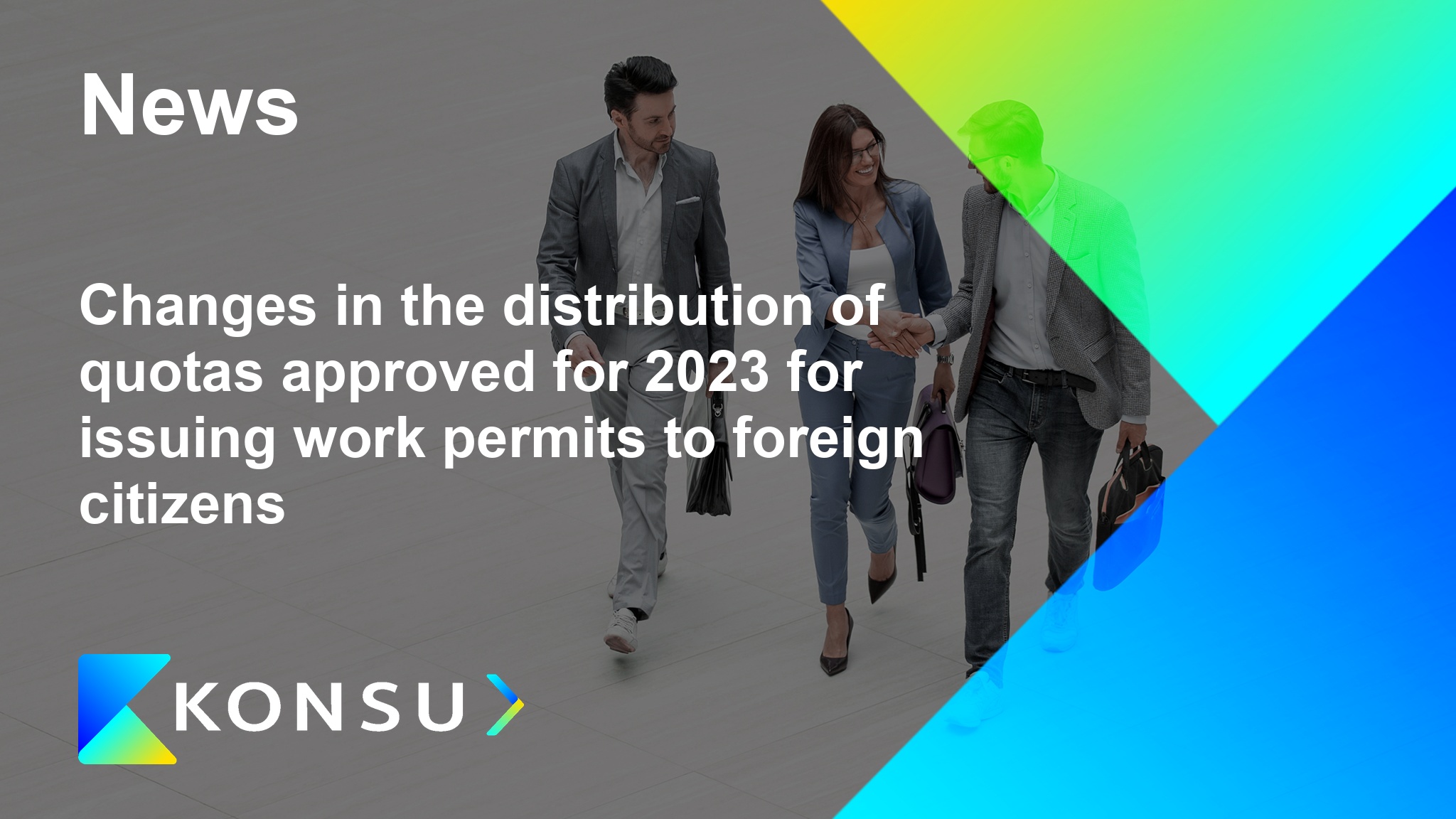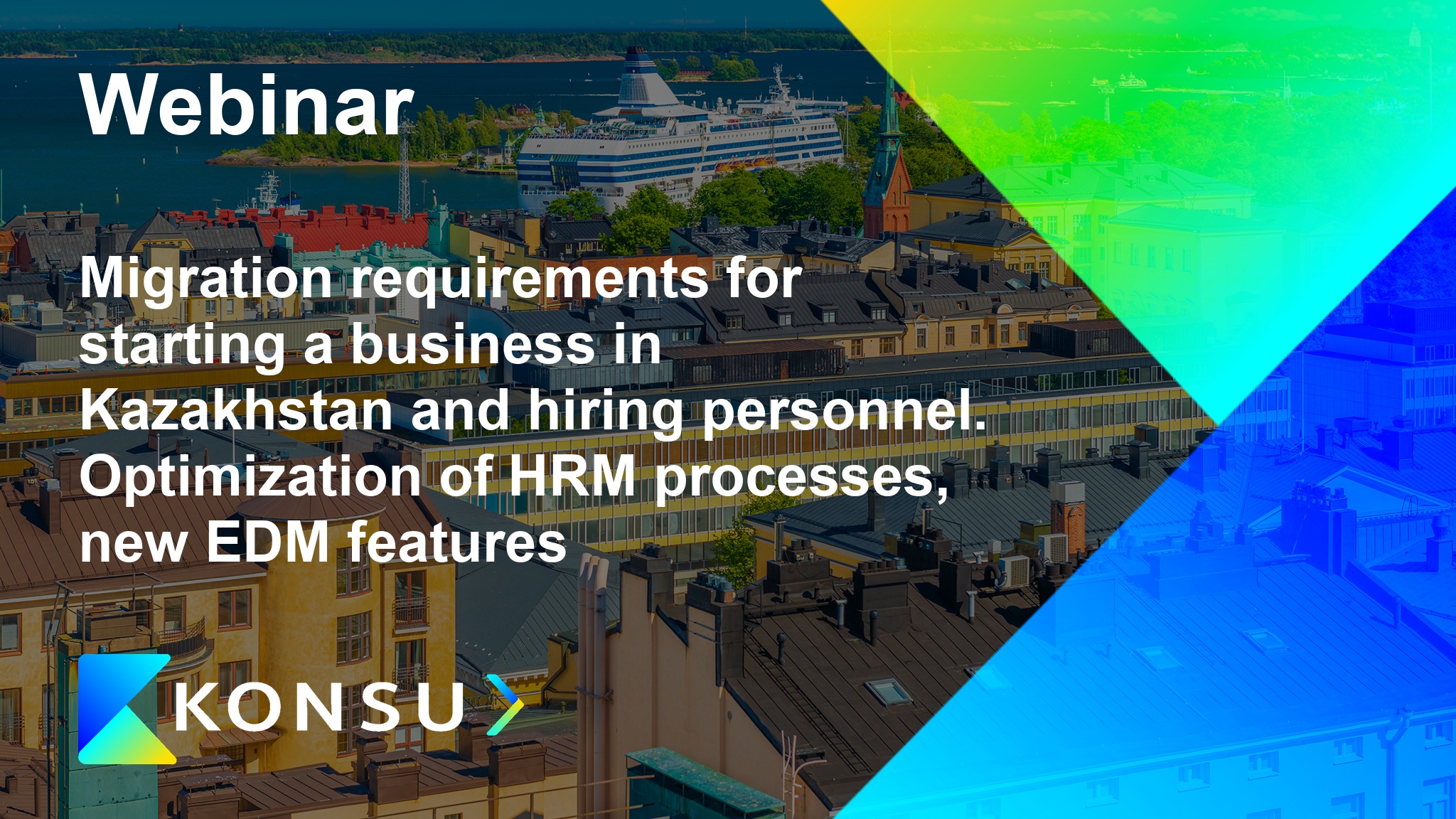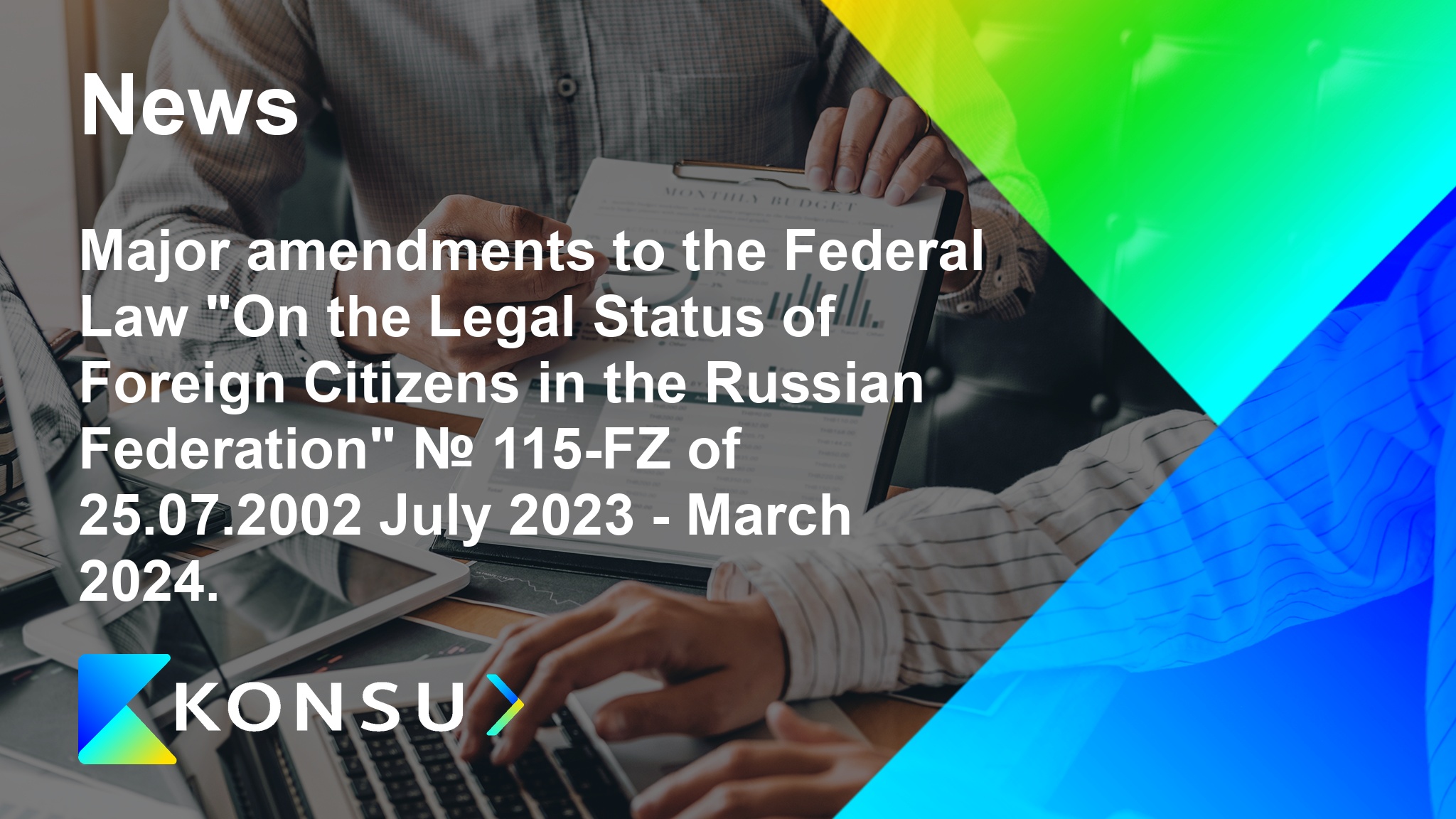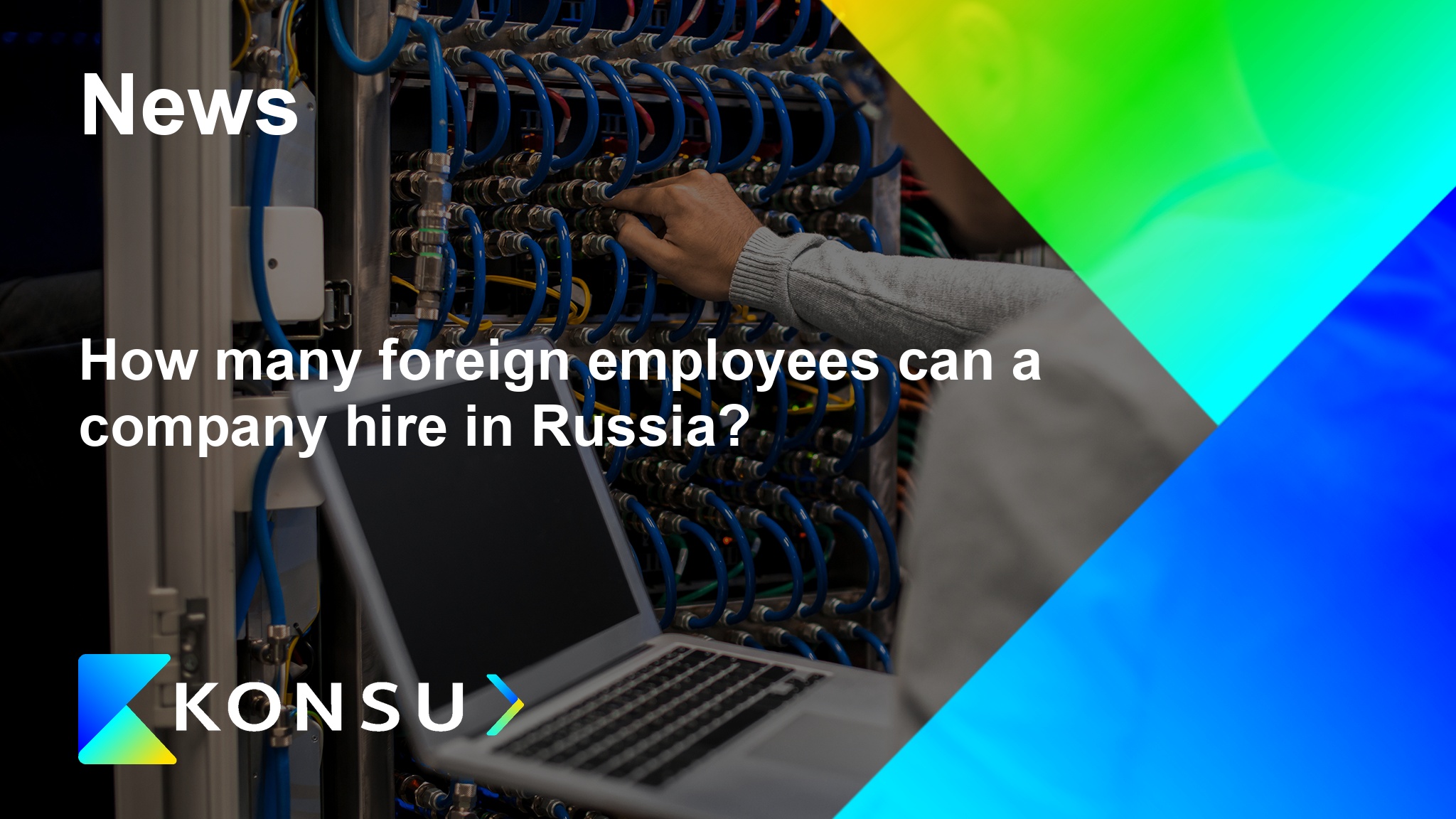Increased salary requirements for foreign HQS employees from 01.03.2024
From March 1, 2024, the salary of a foreign highly qualified specialist will have to be paid at least RUB 750,000 per quarter (at least RUB 250,000 per month).
Read more
Changes in state fees in the area of migration
The federal law Draft Federal Law No. 448566-8 On Amendments to the First and Second Parts of the Tax Code of the Russian Federation, Certain Legislative Acts of the Russian Federation, and the Recognition of Certain Provisions of Legislative Acts of the Russian Federation as Invalid, providing for changes in state duties in the field of migration (Article 2, paragraph 16), has passed the third reading in the State Duma of the Russian Federation and submitted into the Senate. These changes are introduced into the Tax Code of the Russian Federation (Part Two) dated August 5, 2000, No. 117-FZ (Article 333.28), in case of adoption. Read more
Amendments to the procedure for migration registration of foreign citizens
On October 26, 2023, amendments to the Federal Law of July 18, 2006, No. 109-FZ "On the Migration Registration of Foreign Citizens and Stateless Persons in the Russian Federation" were implemented (introduced by Federal Law of April 28, 2023, No. 156-FZ).
These changes pertain to the ability of foreign citizens to independently submit a notification of their arrival to the immigration authorities. This option is now available in the following cases (in addition to cases specified by law earlier[1]):
- A foreign citizen personally submits electronically within the legally established timeframe[2] a notification of their arrival to the immigration authorities, as well as the arrival of their children under the age of 18, if:
- the residential premises provided to the foreign citizen for actual residence (temporary stay) are owned by a Russian citizen who has a personal account on the "Gosuslugi" portal and is registered in the ESIA state system (ESIA Gosuslugi), and
the foreign citizen has a personal account on the "Gosuslugi" portal and is registered in the ESIA state system (ESIA Gosuslugi).
In this case, the consent of the owner of the residential premises for the actual residence (temporary stay) of the foreign citizen and children under the age of 18 in the residential premises owned by this owner is confirmed using the portal ESIA Gosuslugi in the manner prescribed by the Government of the Russian Federation.
Regarding their children under the age of 18, documents confirming the family relationship[3] are attached to the notification.
Exception: This does not apply to cases where a foreign citizen is accommodated in organizations and institutions specified by the Law, including hotels, sanatoriums, medical organizations, social service organizations, and organizations where legal/other activities not prohibited by law are carried out (if the foreign citizen actually resides at the address of such organization/its premises)[4].
- If a foreign citizen who has arrived in the Russian Federation in accordance with the visa requirement actually resides in the premises declared in the application for the issuance of an invitation to enter the Russian Federation as the intended place of stay, then the notification of their arrival at this place of stay can be submitted to the migration registration authority personally by the foreign citizen[5].
Exception - the same as item 1 above.
- In the case of concluding a lease agreement for residential premises between the foreign citizen and the receiving party, the foreign citizen shall submit a notification of their arrival at the place of stay and the arrival of their children under the age of 18, specified in the lease agreement, to the migration registration authority in person or in electronic form.
A copy of the residential lease agreement and documents confirming the family relationship (for children under 18 years of age) [6] shall be attached to the notification.
Additionally, it is provided that when the foreign citizen submits a notification of their arrival at the place of stay and the arrival of their children under 18 years of age in electronic form, the detachable part of this notification in electronic form, signed by the qualified electronic signature of the official of the migration registration authority, shall be sent to the personal account of the foreign citizen in ESIA Public Services, which will serve as confirmation that the receiving party has taken the necessary actions to register the foreign citizen at the place of stay[7]. This provision applies only in cases when:
- the foreign citizen declares actual residence (stay) in a residential premises owned by them[8];
- the notification is sent through ESIA Public Services (item 1 discussed above)[9];
when the premises are provided by the receiving party under a residential lease agreement (item 3 discussed above)[10].
[1] part 3-3.2. of article 22 Law No. 109-FZ
[2] The deadlines are established in part 3 of article 20 Law No. 109-FZ
[3] part 3.3. of article 22 Law No. 109-FZ
[4] paragraphs 1 and 3 of part 3 of article 20 and part 2 of article 21 Law No. 109-FZ
[5] part 3.4. of article 22 Law No. 109-FZ
[6] part 3.5. of article 22 Law No. 109-FZ
[7] part 4.1., part 7 of article 22 Law No. 109-FZ
[8] part 3.1. of article 22 Law No. 109-FZ
[9] part 3.3. of article 22 Law No. 109-FZ
[10] part 3.5. of article 22 Law No. 109-FZ
Changes in the distribution of quotas approved for 2023 for issuing work permits to foreign citizens
From 29.09.2023 comes into force the Order of the Ministry of Labor of Russia from 17.08.2023 N 672n "On Amendments to Annexes N 1 - 3 to the Order of the Ministry of Labor and Social Protection of the Russian Federation from December 12, 2022. N 777n "On the distribution of quotas for the subjects of the Russian Federation approved by the Government of the Russian Federation for 2023 for the issuance of foreign nationals arriving in the Russian Federation on the basis of a visa, work permits and invitations to enter the Russian Federation for the purpose of labor activity"
Read more
Migration requirements for starting a business in Kazakhstan and hiring personnel. Optimization of HRM processes, new EDM features

Details
Date and time
14.09.2023 11:00-12:30
Language
- Russian
Admission
Free
Platform
MS Teams

Speakers and topics
Karina Shamsutdinova
- Lawyer at Konsu
Migration requirements for starting business in Kazakhstan and hiring staff
- Migration requirements for company founders;
- HR recruitment: quotas and permits to attract foreign labor;
- HR recruitment: C3 visas and temporary residence permits for citizens of the EEU;
- Other immigration requirements.

Natalia Chernyakina
- Team leader, business systems development group
Optimization of HRM processes, new EDM features
- Optimization of HR document management processes.
- Benefits of EDM with employees;
- Introduction to EDM with employees in Kazakhstan.
Major amendments to the Federal Law "On the Legal Status of Foreign Citizens in the Russian Federation" № 115-FZ of 25.07.2002 July 2023 - March 2024.
Changes to Federal Law "On the Legal Status of Foreign Citizens in the Russian Federation" No. 115-FZ dated July 25, 2002 (hereinafter referred to as Law No. 115-FZ), which came into effect on July 10, 2023. The amendments were introduced by Federal Law No. 316-FZ dated July 10, 2023.Read more
How many foreign employees can a company hire in Russia?
Government of the Russian Federation determines the permissible share of foreign employees annually (clause 5 of Article 18.1 of Federal Law No. 115-FZ of July 25, 2002 "On the Legal Status of Foreign Citizens in the Russian Federation") to regulate the attraction of foreign labor in certain types of economic activities, taking into account regional specifics of the labor market and employment of Russian citizens as a priority. In 2023, the permissible share of foreign employees engaged in certain types of activities in the territory of the Russian Federation will be the following number in the spheres (Resolution of the Government of the Russian Federation No. 1751 dated October 03, 2022):
- Vegetable growing - 50% of the total number of employees used by economic entities (this norm does not apply to the territory of the Udmurt Republic - 0%, Primorsky Krai - 40%, Astrakhan Oblast and Volgograd Oblast);
- Forestry and logging - 50% of the total number of employees used by economic entities (this norm does not apply to the territory of Primorsky Krai - 20%);
- Wood processing and production of wood and cork products, except furniture, straw products and weaving materials - 50% of the total number of employees used by economic entities;
- Construction - 80% of the total number of employees (this norm does not apply to the Republic of Buryatia, the Amur Region, the Republic of Dagestan - 50%, the Krasnodar Territory - 50% and the city of Moscow);
- Wholesale trade in wood raw materials and unprocessed timber - 50% of the total number of employees used by economic entities;
- Wholesale trade in lumber - 50% of the total number of employees used by business entities;
- Retail trade in alcoholic beverages and tobacco products in specialized stores - 15% of the total number of employees;
- Retail trade in medicines in specialized stores (pharmacies) - 0% of the total number of employees used by economic entities;
- Retail trade in non-stationary trade facilities and markets, as well as other retail trade outside stores, tents and markets - 0% of the total number of employees used by economic entities;
- Activity of other land passenger transportation - 24% of the total number of employees (this norm does not apply to the territory of Krasnodar Krai - 0% and Primorsky Krai - 15%, to business entities operating in the territory of the Udmurt Republic according to OKVED 49.31, 49.32 - 0%);
- Cargo transportation activities - 24% (this norm does not apply to the territory of Krasnodar Krai - 0% and Primorsky Krai - 10%);
- Real estate management for remuneration or on a contractual basis, as well as building and territory maintenance activities - 70% of the total number of employees;
- Other activities in the field of sports - 25% of the total number of employees.
Separately for the Ryazan region is set the permissible share for activities in the sphere of manufacturing production - 90%. In accordance with these maximum permissible shares employers must streamline their staff until 01.01.2023.
Simplified conditions for the registration of foreign IT specialists
As of 28.06.22, amendments were made to the Federal Law dated 25.07.2002 N 115-FZ "On the Legal Status of Foreign Citizens in the Russian Federation".Read more
Foreign employee quotas for 2021
Russian Government Decree N 1823 dated November 12, 2020 has specified the number of types of activities for which a foreign employee quota has been set for 2021.
Read more
